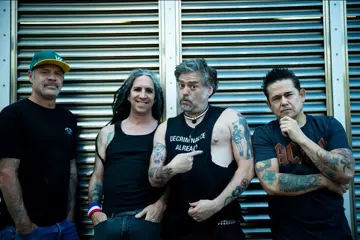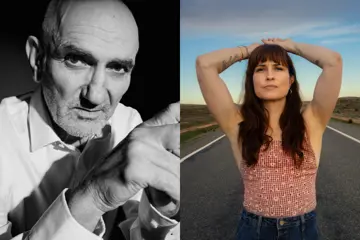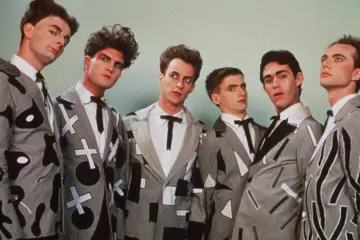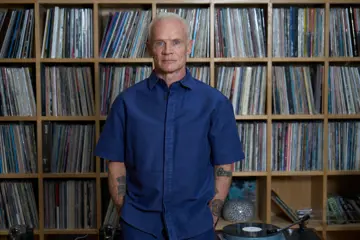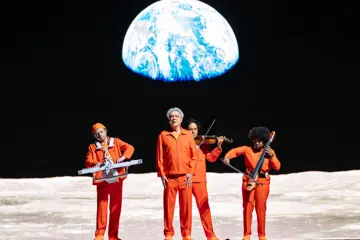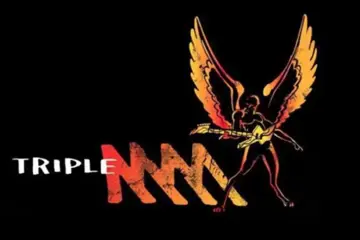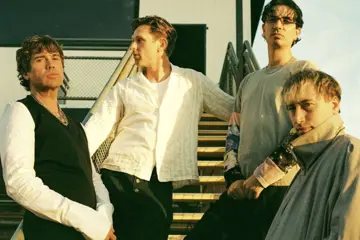 Joan As Police Woman
Joan As Police WomanThere is so much folklore about musicians – live performance can be a transformative experience where they are shamans on stage, guiding the crowd somewhere else. They are full of mystery, or ego, or just pure magneticism. Tonight, though, on a humble Tuesday, what is most compelling is the accesible human-ness of the performers. Impressive musicians as they are, Joan As Police Woman and support Roesy connect, simply and directly.
Firmly situated in the singer-songwriter tradition, Melbourne-via-Ireland's Roesy is in an obvious genre to perform music that connects easily. It is a well-worn road, the folk one, and he walks it with grace. The finger-picked guitar is the gentle anchor for his philosophical songs; warm and bittersweet. Roesy's voice – the Irish accent not faded a jot – is smooth and ragged all at once. During Empty Cup a stage light blows, leaving him in near-darkness. He is unfazed, and jokingly invites us to turn on a sandwich toaster and have a cup of tea together instead. Despite playing to a mostly empty room, Roesy gives a heart-felt performance.
This is an anti-rock star show.
Joined by a drummer, guitarist and synth player, Joan Wasser takes to the stage with her keys, guitar, gold violin and that striking voice to become Joan As Police Woman. If anyone's folklore hangs over them, it is her – in a relationship with Jeff Buckley at the time of his death, musical associations with Antony & The Johnsons and Rufus Wainwright – and yet this is an anti-rock star show. Wasser's music is dramatic, yet presented without drama. Wasser is relaxed – goofy at times, even – and reserved between songs. The band when not playing are patiently waiting to begin again. And yet there is the darkness and a haunting beauty in many of the songs. The former in the dirge-slow version of Christobel, and guitar-shredding build of Nostalgic; the latter in The Ride, and the final movement of opener What Would You Do with Wasser singing alone at her keyboard.
Sexier numbers are still underpinned with longing (Get Direct and Stay), and there are beautiful moments of surrender and passion in the extended funk jams – especially when the violin gets a work out. The group harmonies particularly are wonderful, but can't save the energy when the mid-tempo grooves drag. Shame veers into some insipid white-boy-funk, though there's a brief inclusion of Amerie's 1 Thing that draws some grins.
Don't miss a beat with our FREE daily newsletter
One of the best moments occurs during the encore with the acapella doo wop of The Classic. Awkwardly arranging themselves to the front of the stage, the full band laughs and have a few false starts, and then they joyfully bop and sway in an innocent celebration of love.

